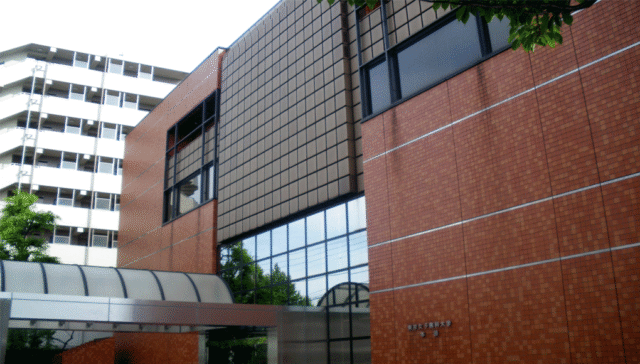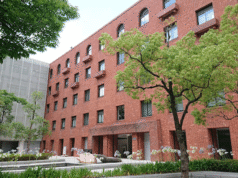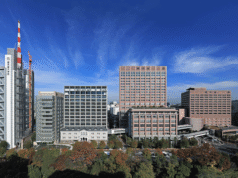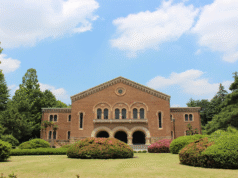Tokyo Women’s Medical University: Leading with Sincerity, Compassion, and Women’s Empowerment in Medicine
Introduction
Founded in 1900 to uplift women’s social and economic independence through medicine, Tokyo Women’s Medical University (TWMU) in Shinjuku, Tokyo, stands as Japan’s only women’s medical university. Guided by its guiding principles of “Sincerity and Compassion” and a continued focus on advancing women in the medical profession, TWMU has expanded into a comprehensive educational institution—offering pioneering programs in medicine, nursing, and medical science, alongside internationally oriented education, robust research facilities, and excellence in clinical care.
1. Establishment & Historical Evolution
- 1900: Established as Tokyo Women’s Medical School by Dr. Yayoi Yoshioka, with the mission of empowering women through professional medical education—a radical vision in early 20th-century Japan. (東京女子医科大学)
- 1908–1952: Evolved through stages—opening the school hospital (1908), becoming Tokyo Women’s Medical Professional School (1912), navigating wartime expansions and closures of nursing institutes, eventually formalized as Tokyo Women’s Medical College in 1952 under Japan’s reformed educational structure. (東京女子医科大学)
- 1998: Renamed Tokyo Women’s Medical University, coinciding with establishment of the School of Nursing. (東京女子医科大学)
2. Founding Philosophy
- TWMU was founded on the belief that medicine served as both noble profession and a vehicle for women’s empowerment, supporting financial and social independence. (東京女子医科大学)
- The university philosophy—“Sincerity and Compassion”—continues to guide its educational, clinical, and research missions, rooted in caring ethics and dedication. (東京女子医科大学)
3. Academic Structure: Faculties & Courses Offered
Undergraduate Schools
- School of Medicine – primary medical education for aspiring female physicians.
- School of Nursing – established in 1998, expanding professional scope. (東京女子医科大学)
Graduate Programs
- Graduate School of Medical Science – doctoral and master’s programs across functional studies, morphology, social medicine, internal medicine, surgical medicine, and advanced life science. (東京女子医科大学)
International Education
- TWMU fosters global perspectives via education and exchange:
4. Clinical & Hospital Facilities
- Tokyo Women’s Medical University Hospital (Shinjuku): Houses ~50 clinical departments offering advanced procedures including robot-assisted surgeries (~600/year), minimally invasive and catheter treatments, and ~10,000 surgeries annually—upholding the institution’s philosophy of compassionate, high-quality care. (東京女子医科大学)
- Adachi Medical Center (opened Jan 2022): A regional core hospital with tertiary emergency care, cancer treatment, obstetrics, Kampo and acupuncture services—serving as a vital educational and clinical hub in Northeast Tokyo. (東京女子医科大学)
5. Research Facilities & Innovation
- TWIns (Tokyo Women’s Medical Uni–Waseda University Joint Institution for Advanced Biomedical Sciences): Created in 2008 to fuse medicine, science, engineering, and industry. Features:
- Institute of Advanced Biomedical Engineering & Science (IABMES): Pioneering regenerative medicine, cell sheet engineering, robotic surgical systems. (東京女子医科大学)
- Medical Innovation Laboratory (MIL): A platform for academia-industry collaboration to translate research into practical technologies. (東京女子医科大学)
- Institute of Laboratory Animals: Supports genomic and regenerative medicine research via genome editing and in vitro embryology. (東京女子医科大学)
- Cancer Center: Integrates advanced clinical care (e.g., gamma knife, IMRT, molecular-targeted therapies) with translational cancer research. (東京女子医科大学)
- Clinical and Academic Research Promotion Center (CARP): Established in 2020 to manage clinical trials, ethics, and research quality across the university. (東京女子医科大学)
- Medical Research Institute (1958): Hosts foundational laboratories and facilities using radioactive isotopes. (東京女子医科大学)
- IABMES (2001): Offers structured PhD programs in techno-surgery, regenerative engineering, artificial organs, and translational medicine. (東京女子医科大学)
6. Library & Learning Facilities
- University Library System: Includes Main Library, Adachi and Yachiyo branches, plus Media Lab and archives. The Main Library’s modern building (opened 2020) supports collaborative learning and digital research. (東京女子医科大学)
- Yoshioka Yayoi Memorial Room: Pride of TWMU, preserving the founder’s legacy via personal artifacts, writings, and historical documents. (東京女子医科大学)
7. Career Development & Professional Support
- Career Development Center for Medical Professionals: Supports lifelong career growth, especially empowering women physicians and nurses. Recognized with the 2017 Tokyo Metropolitan Government Women’s Empowerment Award. Notably, as of July 2020, female professors made up 31.1% of faculty. (東京女子医科大学)
8. Address & Contact Details
- Main Campus (Shinjuku)
- 8-1 Kawada-cho, Shinjuku-ku, Tokyo 162-8666, Japan
- Tel: +81-3-3353-8111 (東京女子医科大学)
9. Academic Excellence & Reputation
- TWMU continues to uphold its unique identity as the only women’s medical university in Japan, rooted in empowering female medical professionals. (東京女子医科大学)
- Its cross-disciplinary research, advanced clinical technologies, and global partnerships enhance its contribution to modern medicine and education.
10. Notable Alumni
- Utako Okamoto, MD – Discovered tranexamic acid, a globally essential hemostatic medicine used for postpartum hemorrhage; TWMU alumna. (Wikipedia)
11. Scholarships & International Support
- While detailed scholarship listings are not shown, TWMU’s robust International Education framework and career development support imply structured student assistance and mobility programs. (東京女子医科大学)
Conclusion
Tokyo Women’s Medical University stands as a pioneering institution merging women’s empowerment, medical education, clinical excellence, and innovative research. With its deep-rooted history, multi-faceted academic structure, cutting-edge facilities, and a steadfast commitment to nurturing compassionate female medical professionals, TWMU continues to shape the future of healthcare in Japan and beyond.
Summary Table
| Aspect | Highlights |
|---|---|
| Founded | 1900 (Medical School); College formed 1952; University named in 1998 |
| Founding Vision | Empower women through medicine—sincerity & compassion |
| Schools | Medicine, Nursing; Graduate School of Medical Science |
| International Links | Medicine (12 schools in 9 countries), Nursing (Hawai‘i, Korea, US) |
| Clinical Facilities | Main Hospital (robotic/minimally invasive surgery); Adachi Medical Center |
| Research Centers | TWIns, IABMES, Cancer Center, CARP, Research Institute |
| Library & Archives | Modern main library, Media lab, founder memorial room |
| Career Support | Women’s Career Center—women professor rate 31.1% (2020) |
| Notable Alumna | Utako Okamoto—discovered tranexamic acid |
| Address | Shinjuku, Tokyo; Tel: +81-3-3353-8111 |
Tokyo Women’s Medical University admission process, Tokyo Women’s Medical University medical programs, women’s medical universities in Japan, top women’s medical colleges Japan, Tokyo medical university scholarships, Japanese women’s medical school rankings, study medicine in Tokyo Japan, Tokyo Women’s Medical University campus facilities














